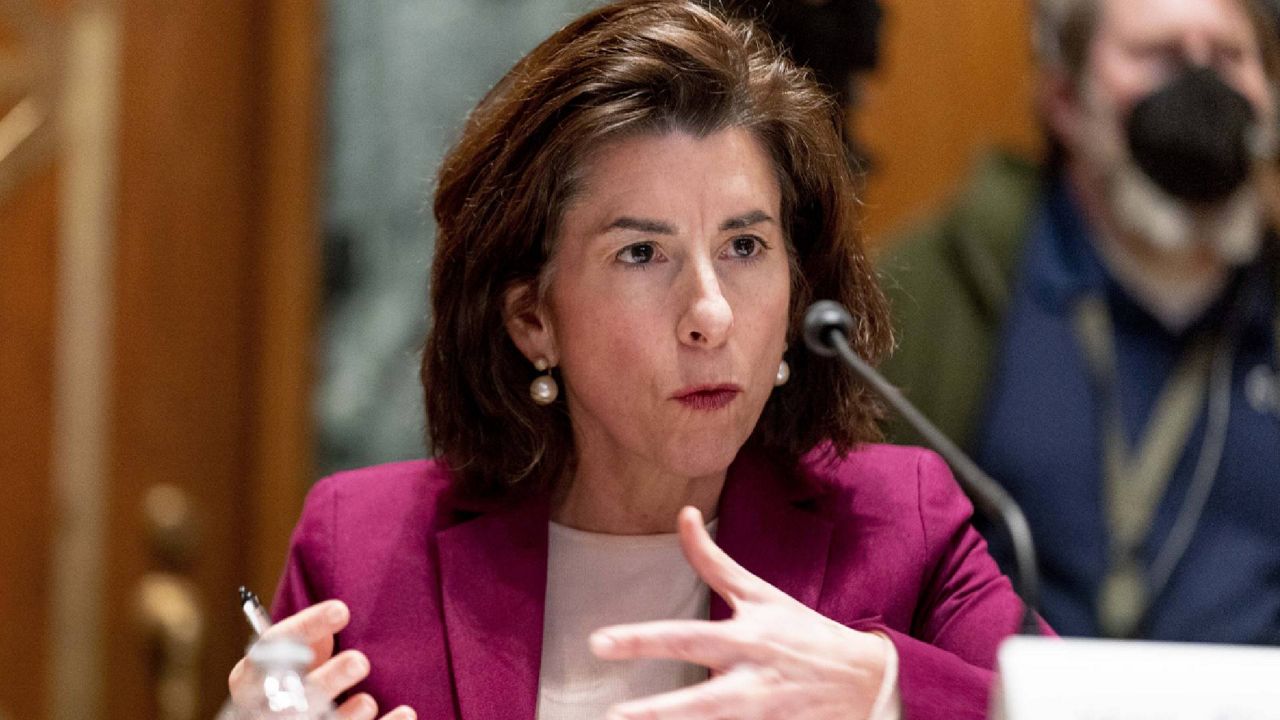Commerce Secretary Gina Raimondo on Tuesday called for Congress to reconcile two versions of a bill that would boost domestic manufacturing of semiconductor chips, an essential piece of technology used in vehicles, phones, hospital and military equipment and other key infrastructure.
Raimondo called the chips the “building blocks of our economy,” yet pointed to how they’re in short supply due to the COVID-19 pandemic and a lack of domestic sources for the chips.
“The reality is the semiconductor supply chain remains fragile and vulnerable,” Raimondo told reporters on Tuesday.
The commerce secretary called the chips a major driver of higher prices for cars, which account for a large portion of inflation.
“Lack of supply has led to big increases in cost,” she said. “Why did the auto industry make so many fewer cars? One reason: they couldn't access enough semiconductors in order to make the cars.”
Raimondo said a congressional infusion of funding would kickstart domestic manufacturing of the chips, but the House and Senate still need to iron out differences between separate bills passed in each chamber.
The House passed one version of the funding under the COMPETES Act with nearly only Democratic support, which includes $52 billion in funding for domestic chip manufacturing and $45 billion for supply chain resilience among a total $250 billion in funding.
The Senate had previously passed its own version called the U.S. Innovation and Competition Act (USICA), which also has $50 billion in emergency funding for domestic chip production.
Asked by Spectrum News when she hopes lawmakers could meet to work out a final bill, Raimondo said her department was already preparing for a bicameral conference and that she was scheduled to meet with a number of senators this week. Yet she didn’t predict an exact timeline, just saying she hopes the process will “kick off soon.”
Senate Majority Leader Chuck Schumer, D-N.Y., has called the chip legislation a priority, and President Joe Biden has expressed his support.
At the core of the issue is the United States’ reliance on outside chip manufacturers instead of domestic ones.
The U.S. accounted for 12% of global chip production as of 2020, down from 37% in 1990, according to the Semiconductor Industry Association.
Meanwhile, Raimondo said, China is investing “hundreds of billions” in the manufacturing and a Taiwanese company is solely responsible for 90% of one type of chips.
U.S. company Intel announced last week it would build a $20 billion chip factory in Ohio, but Raimondo said more facilities are needed.
“From day one, President Biden has recognized that if we want to compete globally, we have to invest domestically,” the commerce secretary said.



